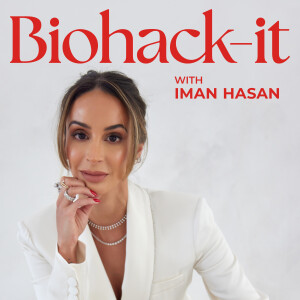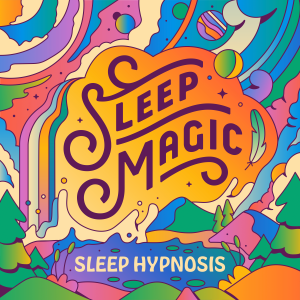

video:
- Dr. Guy Mcpherson Predicts Human Extinction by 2030
- Neil Oliver: ‘By taking back control of the money we can begin regaining control of our world’
- Unpayable Debt & Deadly Vax Causing Hell on Earth – Ed Dowd
- 2 Testimonials
- Trailer For : Science For Hire
Regeneration of brain stem cells boosted by turmeric compound
Institute of Neuroscience and Medicine (Germany) September 28, 2022
A bioactive compound found in turmeric promotes stem cell proliferation and differentiation in the brain, reveals new research published in the open access journal Stem Cell Research & Therapy. The findings suggest aromatic turmerone could be a future drug candidate for treating neurological disorders, such as stroke and Alzheimer’s disease.
The study looked at the effects of aromatic (ar-) turmerone on endogenous neutral stem cells (NSC), which are stem cells found within adult brains. NSC differentiate into neurons, and play an important role in self-repair and recovery of brain function in neurodegenerative diseases. Previous studies of ar-turmerone have shown that the compound can block activation of microglia cells. When activated, these cells cause neuroinflammation, which is associated with different neurological disorders. However, ar-turmerone’s impact on the brain’s capacity to self-repair was unknown.
Researchers from the Institute of Neuroscience and Medicine in Jülich, Germany, studied the effects of ar-turmerone on NSC proliferation and differentiation both in vitro and in vivo. Rat fetal NSC were cultured and grown in six different concentrations of ar-turmerone over a 72 hour period. At certain concentrations, ar-turmerone was shown to increase NSC proliferation by up to 80%, without having any impact on cell death. The cell differentiation process also accelerated in ar-turmerone-treated cells compared to untreated control cells.
Lead author of the study, Adele Rueger, said: “While several substances have been described to promote stem cell proliferation in the brain, fewer drugs additionally promote the differentiation of stem cells into neurons, which constitutes a major goal in regenerative medicine. Our findings on aromatic turmerone take us one step closer to achieving this goal.”
Ar-turmerone is the lesser-studied of two major bioactive compounds found in turmeric. The other compound is curcumin, which is well known for its anti-inflammatory and neuroprotective properties.
Study finds mind-body practices lower blood sugar levels in people with type 2 diabetesUniversity of Southern California School of Medicine, September 30, 2022
Mind-body practices such as yoga and meditation are increasingly popular tools for promoting health and combating diseases, including type 2 diabetes. Approximately 66% of Americans with type 2 diabetes use mind-body practices and many do so because they believe it helps control their blood sugar. Until now, however, whether mind-practices can reduce blood glucose levels has never been rigorously quantified.
According to new research conducted by a team from the Keck School of Medicine of USC, published in the Journal of Integrative and Complementary Medicine, some mind-body practices can be nearly as effective as commonly prescribed drugs at reducing blood glucose levels in people with type 2 diabetes.
The team analyzed data from randomized controlled trials conducted across the globe between 1993 and 2022. They found 28 trials in which people with type 2 diabetes began a mind-body practice in addition to receiving medication and compared their results with people who only received medication to reduce their blood sugar levels.
This study, the first to analyze a range of mind-body practices including meditation, qigong, yoga and mindfulness-based stress reduction and their effect on blood glucose levels, revealed that all mind-body practices led to significant reductions in blood sugar levels.
Taken as a whole, the mind-body practices averaged a .84% reduction in hemoglobin A1c, a measure of the average blood glucose level for the past 3 months. Yoga, the most-studied modality, provided the largest benefit, about a 1% reduction in hemoglobin A1c. The authors noted that a 1% reduction is particularly notable because metformin, the most prescribed diabetes drug, reduces hemoglobin A1c in people with type 2 diabetes by 1.1% on average.
The research suggests that mind-body practices could be used as a both as a complementary nonpharmacological treatment for people with type 2 diabetes and possibly as a preventive measure as well.
Compound in Celery Found to Destroy 86% of Lung Cancer CellsGuangdong Pharmaceutical University (China), September 28th, 2022Celery ihas been found to be extremely effective at killing ovarian, pancreatic, prostate, breast, liver, and lung cancer cells. In fact, in a recent study, celery killed up to 86% of cancer cells in the lungs (in vitro).
In addition to calming your nervous system, aiding digestion, reducing inflammation, and lowering blood pressure, celery also contains an anti-cancer compound called apigenin, which has been effective at causing apoptosis (cell suicide) in numerous types of cancer cells.
Researchers in China have found that by eating just two medium stalks of celery 2 to 3 times a week can reduce the risk of getting lung cancer by 60%. It is still not definitive through the scientists research, however, if the apigenin alone does the work of killing cancerous cells or if they work in cooperation with other compounds found in celery
Furthering the link, other research found: “Apigenin widely inhibits cell proliferation of various lung cancer cell lines in a dose-dependent manner and the combination treatment of apigenin and antitumor drugs is very effective in human lung cancer cells, and Nrf2-ARE pathway may contribute to the mechanism.”
And another study’s abstract focusing on the broader impact of fruit and vegetable intake on cancer concluded:
“In particular, high intake of Chinese cabbage (OR = 0.53), chives (OR = 0 .54), carrots (OR = 0.51) and celery (OR = 0.40) was inversely associated with lung cancer. The OR was more than six-fold elevated for smokers reporting low intake of vegetables, and more than four-fold elevated for smokers reporting low intake of fruit, as compared with never smokers reporting high intake of these items. Moderate alcohol use linked to heart chamber damage, atrial fibrillation in new studyUniversity of California, San Francisco September 28, 2022 A study by UC San Francisco researchers found that even moderate alcohol consumption may change the structure of the heart in ways that increase the risk of atrial fibrillation.
“There’s growing evidence that moderate alcohol intake may be a risk factor for atrial fibrillation, the most common heart rhythm disturbance in the world, but the mechanism by which alcohol may lead to atrial fibrillation is unknown,” said Gregory Marcus, MD, endowed professor of atrial fibrillation research at UCSF and senior author of the study published in the Journal of the American Heart Association.
Marcus and colleagues looked at damage to the left atrium of the heart as a possible pathway between alcohol and atrial fibrillation. Atrial fibrillation is a known risk factor for stroke. The irregular pumping of blood can lead to blood clots, which may travel to the brain and cause stroke.
The researchers evaluated data from more than 5,000 adults collected over several years in the Framingham Heart Study, including echocardiograms, medical history and self-reported alcohol intake. The study participants, mostly white and in their 40s to 60s, reported on average just over one drink per day. The overall rate of atrial fibrillation in the group was 8.4 cases per 1,000 people per year – meaning over a 10-year period, eight out of 100 people were likely to develop atrial fibrillation.
Every additional drink per day was associated with a 5 percent increase in the yearly risk. Every additional drink per day also was associated with a statistically significant 0.16 millimeter enlargement of the left atrium, highlighting a possible site of physical damage caused by drinking
Ginger effective for muscle pain relief
University of Georgia, Sep 29, 2022
A new study has suggested that daily doses of raw or heat-treated ginger are effective for relieving muscle pain following strenuous exercise.
Some research has shown that ginger may have anti-inflammatory and analgesic properties similar to nonsteroidal anti-inflammatory drugs. In one study, four to 36 weeks of daily ginger doses (30 to 500 mg.) achieved reductions in knee pain from osteoarthritis.
Researchers from the University of Georgia examined the efficacy of multiple days of ginger doses for relieving experimentally induced muscle pain from 18 eccentric muscle exercises.
For the study, student volunteers were tested on 11 consecutive days while taking ginger supplements. Seventy-four students were divided in three groups given either raw ginger, heated ginger or placebo.
The authors hypothesized that pain ratings after exercise would be lower in the ginger group compared to placebo subjects.
Results from the subjects’ responses data showed that both raw and heat-treated ginger lowered muscle pain intensity after eccentric exercise by 25 and 23 per cent, respectively. Heat treating ginger, therefore, did not increase the analgesic benefit.
Whether ground, instant or decaffeinated, coffee drinking associated with longer lifeBaker Heart and Diabetes Research Institute (Australia), September 28 2022.
Regardless of the type of coffee consumed, people who drink coffee may live longer, as indicated by research findings reported in the European Journal of Preventive Cardiology.
“In this large, observational study, ground, instant and decaffeinated coffee were associated with equivalent reductions in the incidence of cardiovascular disease and death from cardiovascular disease or any cause,” senior author Peter Kistler, PhD, stated.
The study included 449,563 men and women enrolled in the UK Biobank, which recruited UK residents from 2006 to 2010 and collected data concerning dietary intake, including coffee consumed, and other factors. Individuals included in the current investigation did not have cardiovascular disease or heart arrhythmias at the beginning of the study.
During an average follow-up of 12.5 years, 27,809 deaths occurred. Compared with non-coffee drinkers, people who reported drinking ground, instant or decaffeinated coffee had a significantly lower risk of dying from all causes during follow-up. The greatest risk reduction was associated with drinking 2 to 3 cups coffee per day, with ground coffee associated with 27% lower risk compared with no coffee drinking. Drinking any type of coffee was also associated with a reduced chance of developing cardiovascular disease, and 2 to 3 cups was again associated with the most protection. The development of arrhythmias was less among people who consumed ground or instant coffee, but not decaffeinated coffee.
“The beverage contains more than 100 biologically active components,” Dr Kistler remarked. “It is likely that the non-caffeinated compounds were responsible for the positive relationships observed between coffee drinking, cardiovascular disease and survival. Our findings indicate that drinking modest amounts of coffee of all types should not be discouraged but can be enjoyed as a heart healthy behavior.”
More Episodes
All Episodes>>You may also like
Create Your Podcast In Minutes
- Full-featured podcast site
- Unlimited storage and bandwidth
- Comprehensive podcast stats
- Distribute to Apple Podcasts, Spotify, and more
- Make money with your podcast












